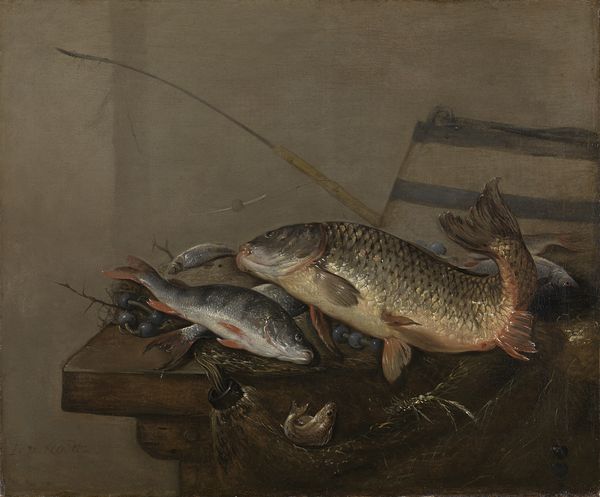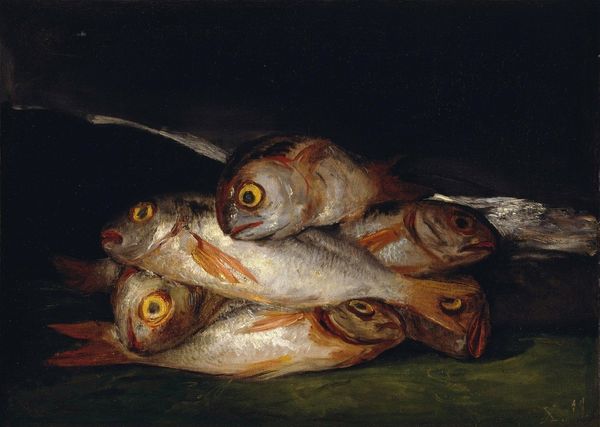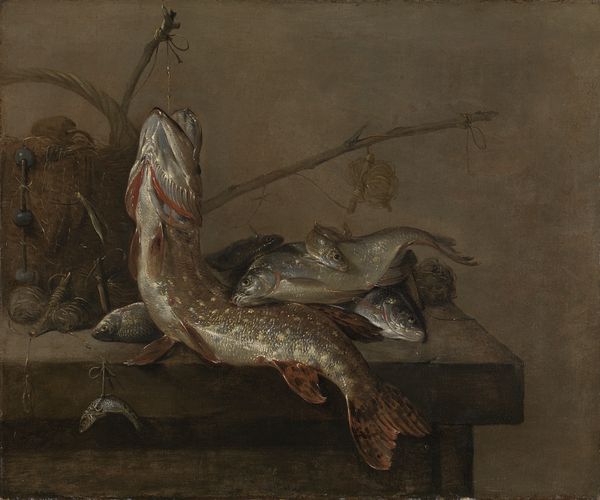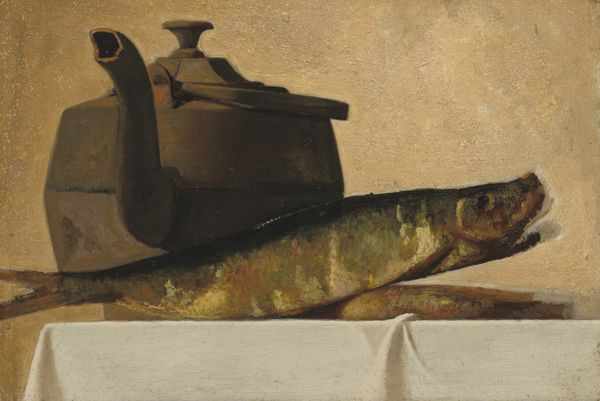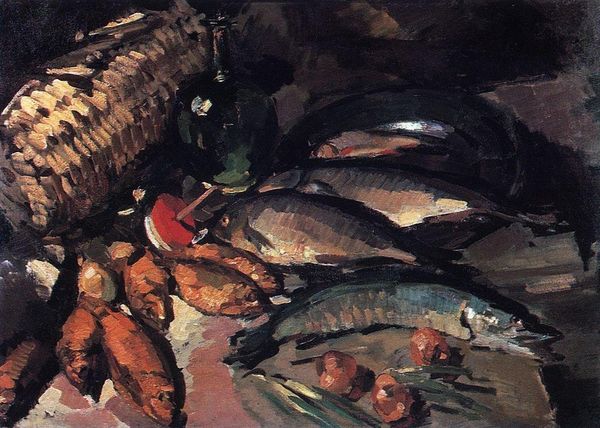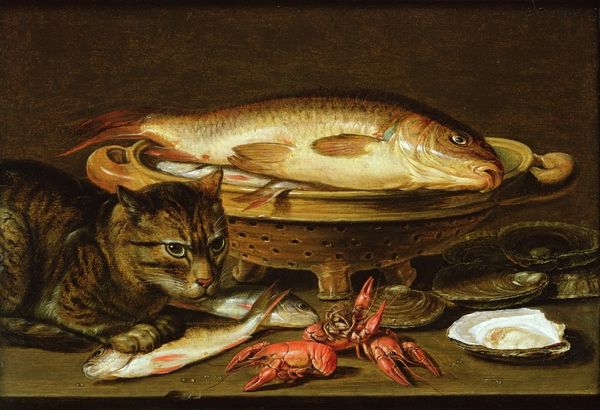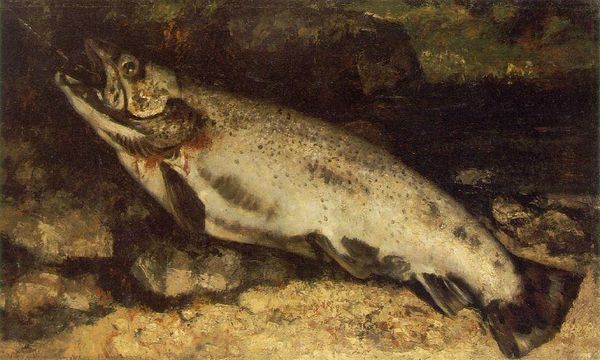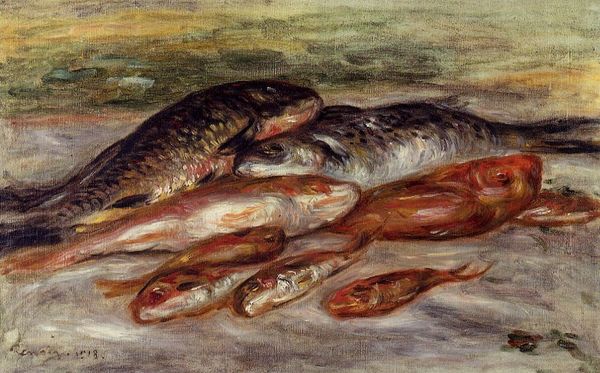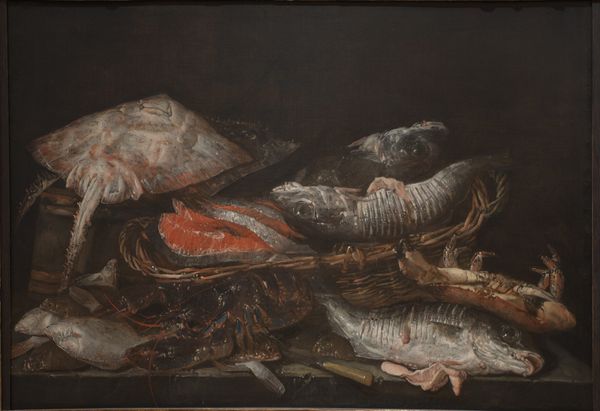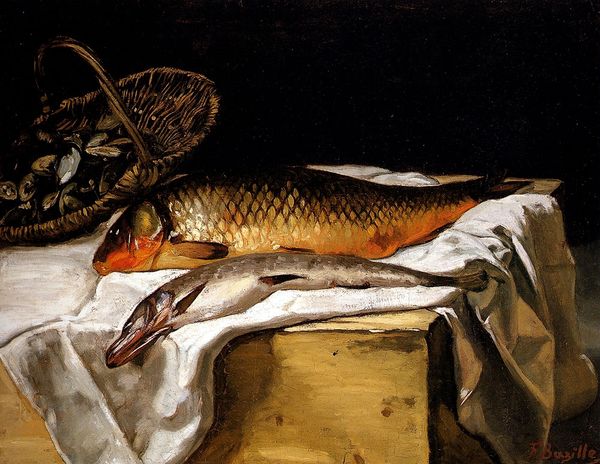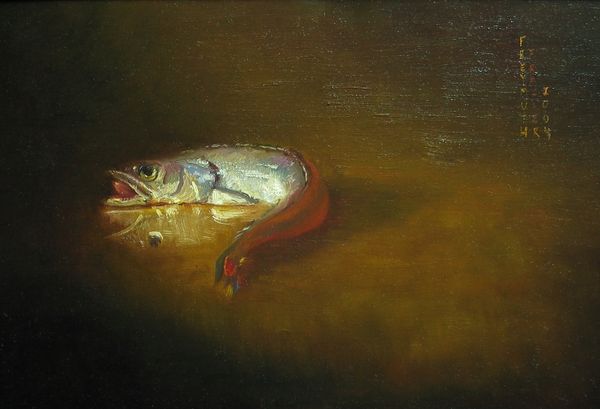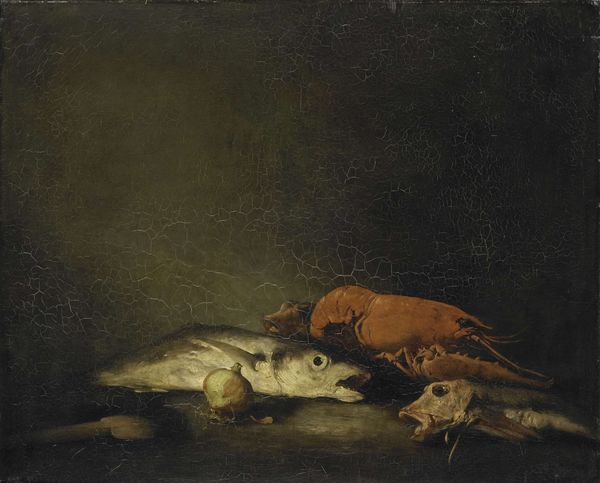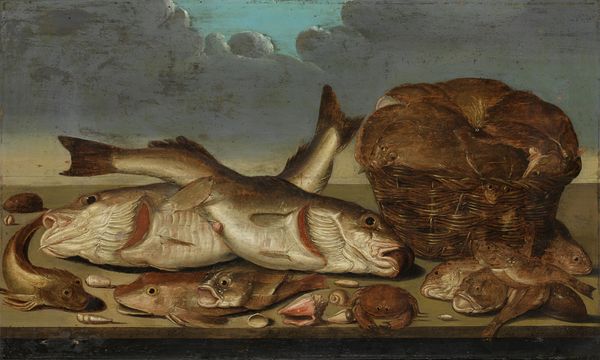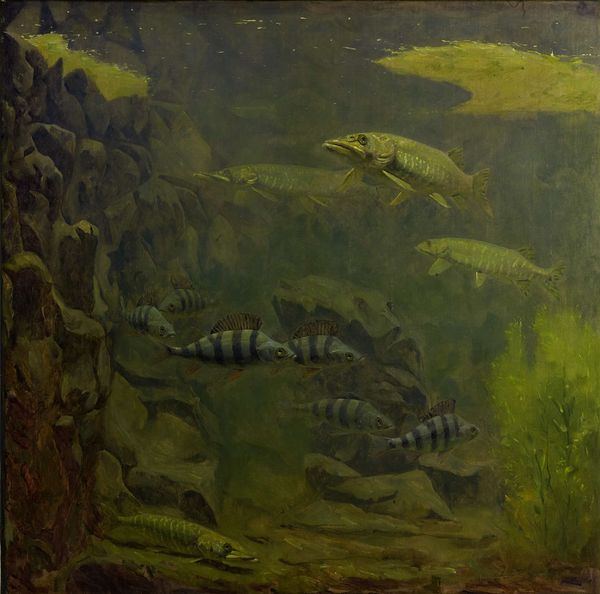
oil-paint
#
oil-paint
#
oil painting
#
romanticism
#
animal portrait
#
united-states
#
genre-painting
Dimensions: 17.2 × 27.3 cm (6 3/4 × 10 3/4 in.)
Copyright: Public Domain
Editor: Here we have "Fish," painted in 1842 by Shepard Alonzo Mount. It's an oil painting currently housed at the Art Institute of Chicago. The dark palette really strikes me. There's almost a stillness to the scene, like a moment captured right after a successful fishing trip. What are your thoughts when you look at this painting? Curator: It's a compelling depiction, especially when considered through the lens of 19th-century American art and its developing relationship with ideas of nature and society. Genre paintings like this one often masked social commentary behind seemingly simple subjects. Think about what it meant to depict these fish – this bounty – at a time when the United States was undergoing rapid expansion and industrialization. Who do you think was the intended audience for a work like this? Editor: Perhaps urban dwellers who were becoming increasingly removed from the natural world? It's almost like a nostalgic yearning for simpler times, or a celebration of self-sufficiency. Curator: Exactly. Mount lived and worked on Long Island, a rural area that was nonetheless feeling the effects of urbanization. Paintings like "Fish" tap into that tension. The act of presenting something so readily available also connects it to market economies and displays of sustenance, or even wealth. How do you think its display in a museum alters its original purpose? Editor: Well, placing it in a museum setting definitely elevates its status, removing it from the everyday and giving it a cultural importance it may not have originally possessed. It invites viewers to analyze it on a deeper level than just as a still life of fish. Curator: Precisely. It’s through these institutional frameworks that we assign value and construct narratives around art, influencing how future generations perceive both the art and the society that produced it. Editor: I see! This was a surprisingly thoughtful composition. Curator: Indeed, context is everything. It's a simple subject, rendered in a complex historical moment, and placed now, into new networks of meaning.
Comments
No comments
Be the first to comment and join the conversation on the ultimate creative platform.
